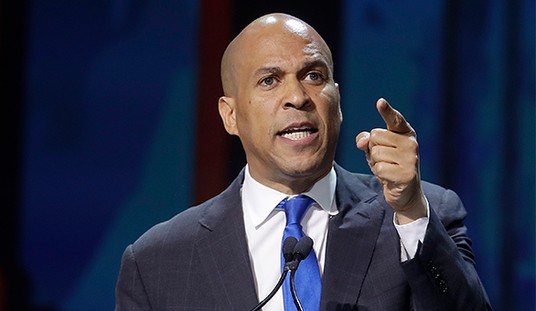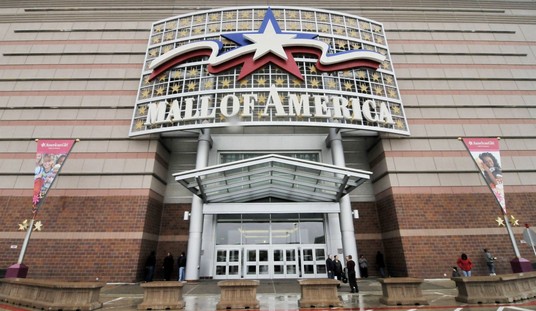https://www.youtube.com/watch?v=cAoVQ9fIK3Q
Trump summoned GOP House leaders to the White House midday on Thursday and promised to veto any spending bill which did not include funding for the border wall. Several hours later, the House approved a spending bill that provides $5.7 billion for the wall. The bill passed by a 217-185 margin, with eight Republicans voting no.
The greater challenge is moving the bill through the Senate where 60 votes are required for passage. Considering that all 49 Senate Democrats oppose the wall, it may be impossible to reach this threshold and we are heading for a partial government shutdown.
Following the House vote, Senate Minority Leader Chuck Schumer (D-NY) said “the Trump temper tantrum may produce a government shutdown. It will not get him his wall … Donald Trump wants a shutdown and [Republicans] seem to be so afraid that they’re going to go along. We’ll see.”
Starting at 3:10 in the video above, Trump makes his case for a border wall. He argues quite persuasively that the US has spent trillions of dollars and thousands of brave young lives to protect the borders of foreign countries while Congress refuses to provide $5 billion to protect our own border.
In life, there are certain principles worth fighting for. Principles that are more important than politics, party or personal convenience. The safety and security and sovereignty of the United States is the most important principle of all. If we don’t stand strong for our national borders, then we cease to be a nation and we betray our commitment to the great citizens of our great country.
It’s unclear if there’s anything Trump can offer Senate Democrats to drum up the votes necessary to pass this bill. Certainly, it’s not a question of money. When one considers the immense size of the federal budget, $5 billion is trivial. Especially when the government has just pledged $10.6 billion in aid to Mexico and Central America. Rush Limbaugh explains the reasoning for this latest move.
The theory is that if we provide aid money to these war-torn, poverty stricken areas we can build ’em up and their people won’t want to leave.
We’ve been hearing that since 1992. That was the purpose of NAFTA. NAFTA was gonna build up all these Central American southern hemisphere hellholes. It was going to build ’em up, have roaring economies down there and their people wouldn’t want to leave. How did that work out? How many times have we given whatever amount of money to all of these hellholes in Central and South America for the express purpose we’re told of building up their economies so their people won’t want to leave, and they just continue to leave in even larger numbers and now joining caravans of thousands.
Democrats plainly want to prevent Trump from achieving his signature goal by any means necessary. They simply will not allow Trump a win on this issue. Because Trump campaigned so aggressively on the need for a border wall, his failure to deliver will hurt his chances of victory in 2020.
If the bill does not pass the Senate, Democrats will be on record as opposing border security. Although they seem fine with this, it may alienate some of their own voters in 2020 and may be the reason why Wednesday’s Senate vote was taken by voice vote, which leaves no record of individual votes, rather than by roll call.
Given that Republicans have held majorities in both the House and the Senate for two years, why is this showdown occurring now? In March, Trump vowed he would not sign another spending bill that did not include funding for a wall. However, he has caved again and again when told by Republicans leaders that funding for a border wall has insufficient support in the Senate for passage.
When it appeared that Trump might acquiesce once more, he faced a severe backlash from supporters such as Rush Limbaugh and Ann Coulter who loudly expressed their disapproval. The President heard them. Following his unpopular decision, to say the least, to pull troops out of Syria, it’s possible he didn’t want to frustrate his base again.
Or perhaps, he never intended to cave into Democrats’ refusal to provide funding for his wall and that his perceived “hesitation” on Wednesday was intentional. Rush Limbaugh made an interesting observation on Tuesday about what he calls Trump’s “pacing.”
Trump’s initial statement on something is to make it sound like he’s acquiescing or participating or cooperating and then he always retreats back to his original position of “no deal.”
A very recent example is Christine Blasey Ford. Now, granted, that’s not an issue on which Trump ran for election and won. But after she came forward and said whatever it was she said, Trump’s first reaction was to say he found her very compelling, and that if there’s truths to what she said, that Kavanaugh’s gone.
Remember, a lot of people said, “What do you mean, if she…?” He does it all the time. When the first discussions of repeal and replace Obamacare came out, Trump said some things that made it sound like he was perfectly willing to compromise with Democrats on it. If I applied myself, I could think of five or six of these.
We’ll see what the Senate decides today. If the vote fails, and we head to a shutdown, Trump may yet find a way to fund the wall.
Former Congressman Jason Chaffetz (R-UT), now a Fox News contributor, explains what he calls “Washington’s dirty little secret.” Trump can “take advantage of the broken Congressional process” as many have done before him.
Can the government spend money that has not been specifically authorized by Congress? In theory – no. In practice? Absolutely.
Each year the government spends hundreds of billions of dollars on things that are not specifically authorized by Congress. Both Democrats and Republicans have been complicit in this practice.
The Democrats may feign exasperation with the president potentially spending “unauthorized” money on the wall, but they have enthusiastically participated in the budgetary games that will make it possible. During the Obama administration, the nonpartisan Congressional Budget Office (CBO) estimated $310 billion was spent on unauthorized appropriations in FY 2016 – the last fiscal year of his presidency.
The federal budget is enormous – more than $4 trillion each year, of which roughly $1 trillion is discretionary. It is Congress’s job to authorize programs and appropriate funds for them from this $1 trillion.
However, the budget categories under which programs are authorized and funds are appropriated are very broad, and since Congress doesn’t pass specific language about every last dollar’s use, discretionary funds are inevitably used for things that Congress never specifically funds.
This is how the executive branch often gets the money it needs to do things that Congress won’t formally authorize. It finds money that has been either broadly appropriated or appropriated to a program that is expired and redirects it to a related program or purpose of its choosing.
Chaffetz’s full article appears here.
If Trump is unable to obtain wall funding through Congress, he must find an alternative. At this point, he would do well to take a lesson from the Democrats’ playbook. Trump must find a way, by any means possible, to build this wall.














Join the conversation as a VIP Member